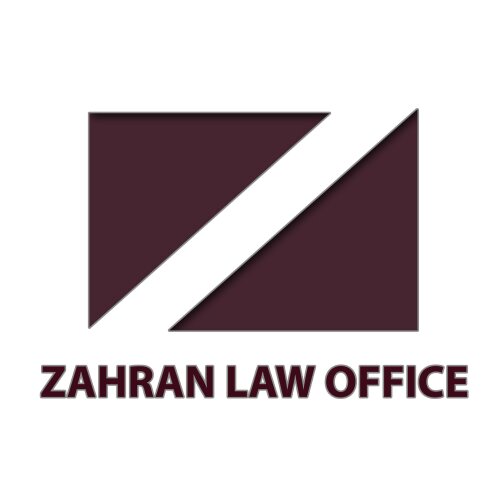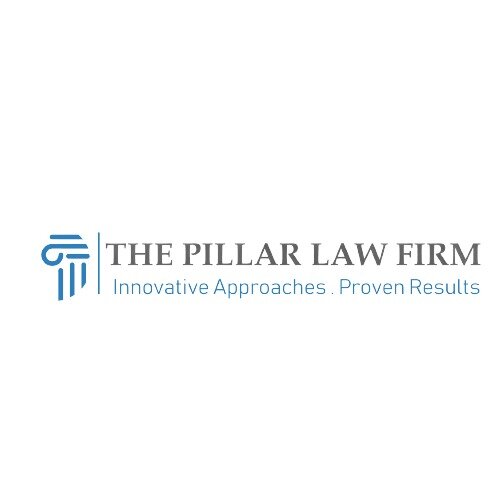Best Debt Capital Markets Lawyers in Egypt
Share your needs with us, get contacted by law firms.
Free. Takes 2 min.
Or refine your search by selecting a city:
List of the best lawyers in Egypt
About Debt Capital Markets Law in Egypt
Debt Capital Markets (DCM) play a crucial role in Egypt's financial ecosystem. These markets serve as platforms where entities such as corporations, banks, the government, and quasi-governmental bodies can raise funds through the issuance of debt instruments. Common instruments include bonds, sukuk (Islamic bonds), and notes. The DCM landscape in Egypt has experienced significant development, especially as the government prioritizes infrastructure projects and private sector growth. Regulations covering these markets seek to provide investor protection, promote transparency, and develop Egypt's financial infrastructure in alignment with global best practices.
Why You May Need a Lawyer
Engaging in Debt Capital Markets involves complex transactions, strict regulatory compliance, and substantial financial stakes. You may need a lawyer in the following situations:
- Advising on the issuance, structuring, and placement of bonds, sukuk, or other debt securities
- Navigating the approval process with the Financial Regulatory Authority (FRA) and other governmental agencies
- Drafting and negotiating prospectuses, offering circulars, and other related documentation
- Ensuring all transactions comply with Egyptian laws and regulations
- Advising on cross-border debt issuances and the application of international market practices
- Managing disputes or regulatory investigations related to DCM activities
- Structuring and advising on private placements and public offerings
- Advising on securities registration, listing, and disclosure obligations
Local Laws Overview
Egypt’s Debt Capital Markets are primarily regulated by Law No. 95 of 1992 (Capital Markets Law) as amended, along with related executive regulations. The Financial Regulatory Authority is the main body overseeing these markets, granting approvals and enforcing compliance. Key aspects include:
- Issuers must obtain FRA approval for public offerings of debt instruments
- Bonds and sukuk can be issued by listed companies, banks, and government bodies, provided they meet certain requirements
- Comprehensive disclosure and transparency requirements exist for prospectuses
- Private placements are possible, but with limits on the number of qualified investors
- Specific regulations exist for sukuk issuance, including Shariah board approval
- Listing of debt instruments on the Egyptian Exchange requires compliance with separate listing rules
- Penalties for violation include fines, suspension, or withdrawal of licenses
- Cross-border transactions may involve additional regulatory and FX considerations
Frequently Asked Questions
What are the main types of debt instruments available in Egypt’s capital markets?
The main types include conventional bonds, sukuk (Islamic bonds), commercial paper, and structured notes.
Who regulates the Debt Capital Markets in Egypt?
The Financial Regulatory Authority (FRA) is the primary regulator overseeing these markets and debt security issuances.
What is the process for issuing bonds or sukuk in Egypt?
Issuers must submit an application, supporting documents, and a prospectus to the FRA for approval before marketing or issuing debt securities.
Can foreign companies issue debt securities in Egypt?
Foreign entities can issue debt instruments in Egypt, subject to FRA regulations and certain eligibility requirements.
What disclosures are required when issuing debt instruments?
Mandatory disclosures include financial statements, risk factors, use of proceeds, and key terms of the debt instrument-all detailed in the offering prospectus.
Are there any restrictions on who can invest in debt securities?
Public offerings are open to all investors, while private placements are restricted to qualified or accredited investors as defined by the FRA.
What tax considerations apply to debt issuance in Egypt?
Interest paid on debt instruments may be subject to withholding tax and other relevant tax laws. It is recommended to seek dedicated tax advice for each transaction.
How are sukuk different from conventional bonds?
Sukuk are Islamic compliant instruments based on underlying tangible assets or projects, requiring Shariah board approval, whereas traditional bonds are simple debt obligations with fixed or variable returns.
What happens if an issuer defaults on debt securities?
Bondholders or sukuk holders may have legal recourse through courts or regulatory authorities, depending on the terms of issuance and security structure.
How long does it take to complete a debt issuance in Egypt?
The timeline varies case by case but typically ranges from several weeks to a few months, depending on the complexity of the transaction and regulatory approvals.
Additional Resources
For further guidance and support on Debt Capital Markets in Egypt, you may contact or consult the following organizations:
- Financial Regulatory Authority (FRA) - Primary regulatory body for capital markets
- Egyptian Exchange (EGX) - Where debt securities may be listed and traded
- Central Bank of Egypt - For issues involving monetary policy or FX regulations
- Egyptian Investment Authority - For foreign investment matters and permissions
- Ministry of Finance - For government securities and public debt information
- Major local law firms specializing in banking, finance, and capital markets
- Chambers of Commerce & business support organizations
Next Steps
If you are considering involvement in Debt Capital Markets in Egypt, whether as an issuer, arranger, investor, or advisor, it is advisable to:
- Identify your objectives and understand the type of instrument you wish to issue or invest in
- Consult a qualified lawyer who specializes in capital markets and financial law in Egypt
- Prepare required documentation, including business and financial information
- Engage with the Financial Regulatory Authority and other relevant bodies early in the process
- Assess the tax, regulatory, and compliance requirements specific to your transaction
- Seek out professional advice for cross-border or complex transactions involving international investors
A lawyer with expertise in Debt Capital Markets will help ensure compliance, minimize risks, and facilitate a successful transaction. Consider arranging an initial consultation to discuss your specific needs and the best strategies for your objectives in Egypt’s evolving capital markets.
Lawzana helps you find the best lawyers and law firms in Egypt through a curated and pre-screened list of qualified legal professionals. Our platform offers rankings and detailed profiles of attorneys and law firms, allowing you to compare based on practice areas, including Debt Capital Markets, experience, and client feedback.
Each profile includes a description of the firm's areas of practice, client reviews, team members and partners, year of establishment, spoken languages, office locations, contact information, social media presence, and any published articles or resources. Most firms on our platform speak English and are experienced in both local and international legal matters.
Get a quote from top-rated law firms in Egypt — quickly, securely, and without unnecessary hassle.
Disclaimer:
The information provided on this page is for general informational purposes only and does not constitute legal advice. While we strive to ensure the accuracy and relevance of the content, legal information may change over time, and interpretations of the law can vary. You should always consult with a qualified legal professional for advice specific to your situation.
We disclaim all liability for actions taken or not taken based on the content of this page. If you believe any information is incorrect or outdated, please contact us, and we will review and update it where appropriate.
Browse debt capital markets law firms by city in Egypt
Refine your search by selecting a city.
















